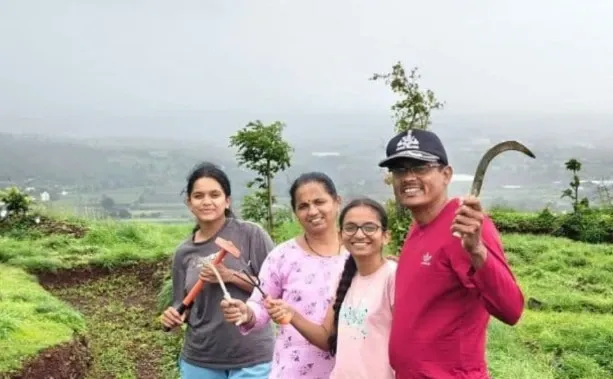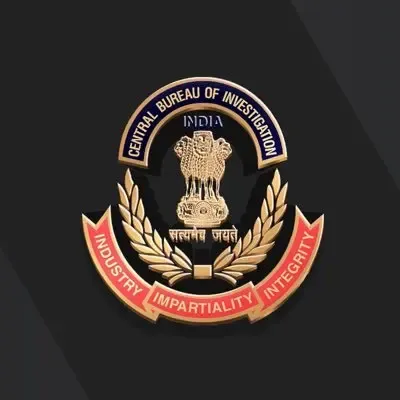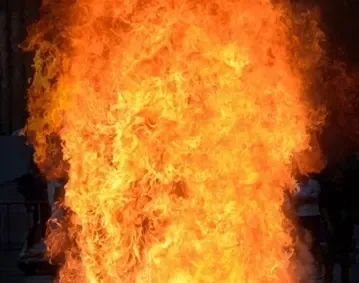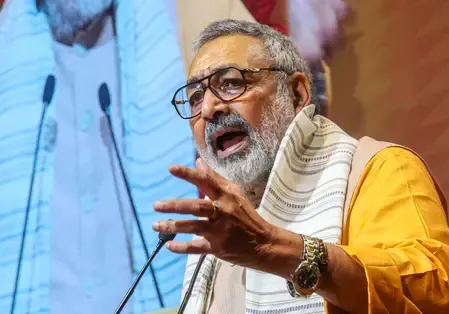How Did Ramesh Kharmale Feel After Being Featured by PM Modi?

Synopsis
Key Takeaways
- Ramesh Kharmale is a former Indian Army soldier dedicated to environmental conservation.
- He has received recognition from PM Modi for his efforts in 'Mann Ki Baat'.
- Kharmale is transforming barren hills through afforestation and water conservation.
- His initiatives encourage community involvement in environmental efforts.
- He believes every small action can lead to significant changes in the environment.
Pune, June 30 (NationPress) Ramesh Kharmale, a former soldier of the Indian Army and currently a forest guard in Maharashtra's Forest Department, expressed profound appreciation to Prime Minister Narendra Modi for recognizing his environmental initiatives in the 123rd episode of 'Mann Ki Baat'.
This acknowledgment, he stated, not only honors him personally but will also motivate many others to engage in efforts aimed at environmental conservation.
“My family and I will forever be grateful to the Prime Minister for acknowledging my work in 'Mann Ki Baat'. It is a tremendous privilege,” Kharmale remarked in an exclusive interview with IANS.
On Sunday, PM Modi praised Kharmale’s commitment, noting that he resides in Khodad village within the Junnar taluka of Pune district and tirelessly collaborates with his family to rejuvenate desolate hills through afforestation and water conservation projects. The Prime Minister underscored how Kharmale’s relentless endeavors—such as digging trenches, planting trees, and establishing an Oxygen Park—have facilitated the resurgence of avian and wildlife in the area.
“Ramesh Kharmale from Pune ventures into the hills of Junnar with his family, clears the underbrush, digs trenches for water conservation, and plants seeds,” PM Modi mentioned during the 'Mann Ki Baat' broadcast.
“In merely two months, he constructed 70 trenches and several ponds. He is also in the process of creating an Oxygen Park, leading to a revival of bird and wildlife populations in the hills.”
Kharmale’s journey has been one of service—first to his country and now to nature. After dedicating 17 years to the Indian Army, he retired in 2012. Following a brief stint at a bank, he realized his true calling lay in serving both people and the environment.
He initiated an academy aimed at training youth for the armed forces, successfully assisting many in joining the Indian Army. Nevertheless, his ardor for environmentalism led him to take the examination for the Forest Department, ultimately becoming a forest guard.
His transition from soldier to environmental advocate commenced on Dhamankhel Hill, near Junnar. In just two months, he and his wife Swati devoted over 300 hours to dig 70 water-retaining trenches that span a total of 412 meters.
These trenches allowed over 800,000 liters of rainwater to infiltrate the ground during a single monsoon season, significantly enhancing the region's water table.
But Kharmale’s mission extends beyond just water conservation. He also planted around 450 trees on the same hill. With a vision to create a sustainable ecosystem, he embarked on developing an 'Oxygen Park', which features a diverse array of plant species to foster biodiversity.
His commitment to fire prevention is equally noteworthy—he implemented special measures to shield the area from wildfires and routinely trekked up the hill during summer to hydrate the plants. He also took on the responsibility of caring for injured birds and animals, viewing it as part of his duty.
“When the Prime Minister mentioned my name in 'Mann Ki Baat', I was completely unaware. I was busy working as usual. When people started calling, I was taken aback and deeply honored,” Kharmale said.
He added, “If my small efforts can garner recognition from the Prime Minister, I believe many others will be inspired to participate. I have always understood the significance of conserving forests and water, lessons I learned during my school years and throughout my 17 years in the Indian Army.”
Kharmale explained how his decision to return to Junnar’s rural tribal area revealed the scarcity of year-round agricultural opportunities.
“Paddy is only cultivated during the rainy season. For the remainder of the year, both the land and people remain inactive. That’s when I decided to take action. My family has been incredibly supportive—my wife Swati assists me in the work, and even our children contribute after school. They believe it’s beneficial for health and nature.”
Kharmale expressed his hope that the Prime Minister would visit the tribal region to witness firsthand the environmental endeavors underway.
“Such a visit would further motivate me and the local community. This work must proceed without pause. A person can last days without food or water, but cannot survive even a moment without oxygen. Therefore, we must prioritize environmental efforts.”
He also acknowledged the support from friends, family, and the broader community for his initiatives. “It’s not merely about planting trees—it’s about fostering a movement. We’re working towards the future.”
Kharmale often recounts the tale of a small bird that, upon seeing a forest fire, attempts to extinguish it by carrying water in its beak.
“People may laugh at the bird, but it persists. It believes this is its forest, and it must do its part to save it. Likewise, this hill and forest are my family, and I labor for them, regardless of what others may say.”
He is convinced that even modest actions, such as planting a tree, can yield significant results.
“Everyone should plant at least four trees for the future. The trees we plant today will provide clean air for our children tomorrow.”
His narrative serves as a compelling illustration of how individual determination can drive substantial environmental change. His message remains clear: No effort is too trivial when it comes to safeguarding the environment.
Kharmale’s mention in 'Mann Ki Baat' has sparked a sense of pride within his local community and encouraged others to unite in environmental efforts. He maintains a humble disposition, focused on a cause transcending his own self.
“I never engaged in this work for recognition. I did it because it was necessary,” he stated.
“Now that the Prime Minister has acknowledged it, I feel an even greater responsibility to continue inspiring others.”
As Ramesh Kharmale continues on his path of environmental service, he exemplifies the essence of selfless dedication to nature and the community. His life story serves as a reminder that true patriotism extends beyond the battlefield; it flourishes in every act of service to society and the environment.









